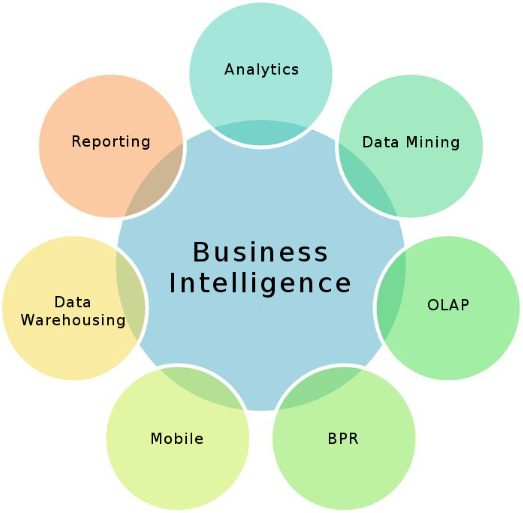
Unlocking Success: Understanding the Importance of Business Intelligence
In the landscape of modern business, the power of data reigns supreme. In a world brimming with information, harnessing this data has become a strategic necessity. This is where Business Intelligence (BI) steps in, transforming raw data into actionable insights and steering businesses towards success.
What is Business Intelligence?
Business Intelligence encompasses a set of technologies, strategies, and practices used to gather, analyze, and convert raw data into meaningful and actionable insights. It involves tools that aid in the interpretation of large volumes of data to support decision-making processes.
Why is Business Intelligence important?
- Informed Decision Making: BI empowers organizations to make informed decisions based on accurate and timely data. Real-time insights enable swift and effective responses to market changes.
- Improved Operational Efficiency: By providing a comprehensive view of operations, BI helps identify inefficiencies and areas for improvement, leading to streamlined processes and cost savings.
- Competitive Advantage: Analyzing market trends and customer behavior gives businesses an edge. BI allows for the identification of emerging opportunities and potential risks, helping to stay ahead of the competition.
- Enhanced Customer Experience: Understanding customer preferences and behavior through BI enables personalized services, better customer engagement, and ultimately, increased customer satisfaction.
- Forecasting and Planning: Predictive analytics, a component of BI, assists in forecasting future trends and demands. This foresight aids in better planning and resource allocation.
- Data-Driven Culture: BI fosters a data-driven culture within organizations, where decisions are based on evidence rather than assumptions, fostering innovation and growth.
- Compliance and Risk Management: BI tools help in monitoring regulatory compliance and identifying potential risks, allowing proactive measures to mitigate them.
Implementing Business Intelligence:
Implementing BI involves several crucial steps:
- Data Collection and Integration: Gathering data from various sources and integrating it into a centralized system for analysis.
- Data Analysis: Employing analytics tools to process and interpret data, uncovering patterns and trends.
- Visualization and Reporting: Presenting insights in comprehensible formats, such as charts and dashboards, aids in quick comprehension.
- Continuous Improvement: BI is an ongoing process; continuous evaluation and refinement ensure its relevance and effectiveness.
Conclusion
In today’s dynamic business environment, Business Intelligence is not merely an option but a necessity. It empowers organizations to adapt, innovate, and thrive in the face of constant change. The insights derived from BI are not just numbers; they are the guiding lights illuminating the path toward success.
Harness the power of Business Intelligence and unlock the full potential of your business.
